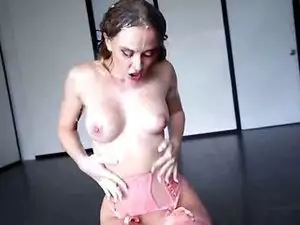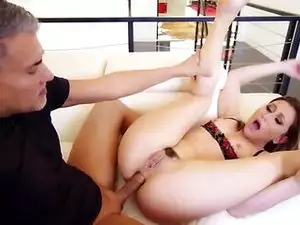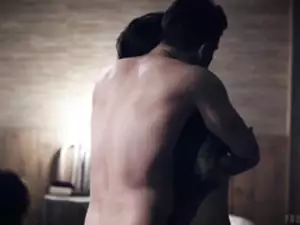Chapter 1. Representation of the People
Lord Philip Harvey sat in his armchair before a roaring fire, frowning
at his newspaper in disapproval. The first handful of articles he had
perused were completely satisfactory and very much to his liking, but by
the time he was half way down page four, he was in a foul mood.
"One would think, would one not," he announced grandly, as if addressing
the Lord Speaker of the upper house of parliament, "The Times would be
above the printing of such scurrilous articles. Even to refute this
poppycock is to give it undue credence."
"Is it not true, my love, that even The Times has a duty to represent
the fact of each matter as it arises, and treat all things in fairness?"
Lady Jane Harvey looked steadily at her husband over the top of the
novel she had been, until that moment, contentedly reading. She closed
the book with her finger inside to mark her place and rested it on her
lap while she awaited his response. Harvey regarded her with great
satisfaction but little heed; she was indeed a beautiful woman, worthy
of the title that his estate and privilege bestowed upon her by
marriage; she was possessed of a steadfastness and confidence that would
not have been misplaced in a man, but which in his beloved Jane, a
woman, made her ideal for standing up to sharp-tongued Duchesses or
perhaps young debutantes with a little too much opinion and much too
little experience; she spoke to the servants with a refined detachment
that neither belittled them, nor created too informal a relationship.
However magnificent she might be, though, it did not mean her opinion
should carry any weight outside the home, or a woman's social circles:
she was a Lady, after all, not a Lord.
"The Times," he replied coolly, "Has the same duty incumbent upon all,
to uphold public order and protect the great institutions of our
country. It should not demean itself by taking even the slightest notice
of reprobates such as those herein described. The opinions of such men
should not be repeated. Already do we see the results of the folly of
suffrage, and the coming of these infernal social intellectuals rising
like flotsam in its wake. Now must we suffer Mr. Gladstone and his
fiendish plotting against the natural order of society. John Stuart Mill
has been dead these past ten years, but still his hand can be felt in
the corridors of power.
"I curse the day that bedevilled Liberal Party came into existence to
blight our political affairs with such envy and malcontent as is their
wont."
"Surely," Lady Jane replied, "It is only right, and to be expected, that
one should wish to better oneself, and the lot of one's family. Do not
you agree?"
Harvey frowned, receiving her words with no little displeasure, and
wondering that such a challenge should come from this handsome woman.
Her deep brown locks, gathered loosely at the back of her head, were
blessed with curls that graced her intelligent forehead, and tresses
that fell behind her shoulders. She wore no cap: her coiffure was, as
ever, immaculate; indoor headgear often being used (as noted in many a
manual of etiquette and politeness) to disguise lazy or slovenly
arrangement of the hair. Her slender neck was exposed in all its beauty,
completing her appearance with an irresistible combination of delicacy
and strength. The picture was finished off to perfection by the tasteful
pale yellow house dress that adorned her figure. However even such
loveliness could not disguise the defiance in her expression as she
stared back at him; to his mind, the lovely image she presented was
completely at odds with her words: words which her husband viewed as
disrespectful: disrespectful both towards the class to which she
belonged, and, since she had effectively gainsaid him, the opinion of
her husband and Lord, and his right for that opinion to be respected and
accepted as truth.
Jane regarded her husband equally as steadily. He was a very handsome
man; he had thick, almost black, hair, cut, according to fashion, not
too short; a moustache that, although he was no more fond of it than she
was, he tolerated because it made him look older than his twenty-seven
years; his face was strong, with good, even features.
"I do not believe one ought to seek to censor the press," she continued,
"The freedom of speech, of which we as a nation are justly proud, would
be undermined, nay, perhaps destroyed, by such inadvisable and
undesirable interference."
"It is also the solemn duty of the press, especially a respectable
publication, to act with responsibility concerning what is printed, and
to be careful not to spread scandalous and immoral gossip, based on
fictitious assumptions, to wit, that the common man is in general
possessed of the means to decide on his own behalf what is best. My
dearest, it is the place of such people to be led, like the simple sheep
they are."
"I should hardly expect The Times to print gossip. What is scandalous
and immoral enough that you should be outraged thus?"
Harvey raised his newspaper and turned it to show her the page he had
been reading, staring at her in anger as he did so. Jane knew him well
enough to be aware that the look of ire was not directed at herself in
particular, but rather was an expression reserved for such things as the
newspaper article that had irked him so. At that distance, she was of
course unable to read the main part of the article, but the headline was
quite clear and she was fully aware of the controversy surrounding it.
Gladstone's Liberal government, elected in 1880, and who were
approaching the end of their third year in office, intended to introduce
a new Representation of the People Act the following year. This would
increase the number of people in the United Kingdom who were eligible to
vote: under the terms of this new act, any man who owned land to the
value of ten pounds sterling would be granted suffrage. Worse, however,
was the intention to include those who rented property to the same
value, which would mean, to the horror of men like Lord Philip Harvey,
the act would give voting rights to men so common they owned no land at
all!
"The new Representation of the People Act is to be brought ... is to be
forced before parliament next year. A third Reform Act, to the deuce
with them! Why would anyone of sound mind deem it acceptable to give a
voice to those too ignorant to use it wisely?"
"There are many who are denied the right to vote," she replied, an edge
of danger in her voice, "And not all those who are thus denied live in
ignorance." They stared at each other for a few moments, he in surprise,
she in indignation, before she continued, "If the advantage of a good
education is the means by which one judges the worth of one's peers, it
must follow there are many who are too unintelligent to use it wisely."
Harvey sat in surprised contemplation for a few seconds before, with a
sharp inhalation, he seemed to come back to life. "Why then, does the
common man live in poverty? Why is he ignorant? Why does he suffer? It
is God's appointment that those of worth shall be born into a wealthy
estate and shall have the power to rule over the lower classes, while
those of a mean, base nature are born into a situation more becoming of
their own disposition.
"As it is not the privilege of every man to rule, thus neither is it the
right of every man to have a vote," he concluded decisively.
"Nor any woman?"
"I am pleased we are of like mind on that subject."
"I am displeased we are not. I am of like mind to the Tynwald Court of
The Isle of Man, where women were granted equal suffrage to men, in
excess of two years past."
"I say that dashed isle courts disaster. Naught but ill can come of such
a fallacy. Mark my words, within another twelvemonth, the Isle of Man
will have been driven to ruin by those who would allow their inferiors a
say in the business of politics. That is the domain of men. No woman
should presume she knows as well as her master."
"Yet a woman is queen of this realm."
"That may be, however Queen Victoria benefits from the direction of
councillors and many other advisers. In short, she is guided by men,
which is right and proper."
"Say you, then, it is not the place of a woman to give council or make
decisions?"
"A woman may plead with her husband, should she see a course of action
she wishes to be followed. It is her husband, though, who shall decide
whether she is right. It is not a woman's place to make direction. It is
her place, and her duty, to be beautiful, to be obedient, and to bear
children."
"I fear you reduce women to an inferiority that many would find
insufferable."
"My dearest Janet, a woman's mind and soul are inferior to that of a
man. For what other reason would she be given an inferior body by God's
appointment?"
****
Jane closed the door of the library quietly and deliberately: she was so
angry that to slam it would not satisfy her; she better felt the need to
control each tiny movement of the door, something that was almost
soothing. She had risen without another word, or indeed another glance
at her husband, and left the morning room in exasperation.
At eye level, immediately opposite where she stood, near the window,
conveniently placed to lay on the table with her back to the sunlight,
was the object from which she intended to take her solace. It had a
thick, wooden cover, intricately shaped and carved, accounting for
almost half the width of the book, and over the years the gradually
yellowing pages had almost come to match the same shade of light brown
as its unusual binding.
Uncharacteristically (for it was a book she loved and was always gentle
and careful with) she rapped it down harshly onto the table, immediately
regretting her show of bad humour in expending her wrath on something
she cared for, and she whispered, "Forgive me," laying her hand gently
on the cover and stroking it. She opened the volume and began to skim
the pages.
It was a collection of writings from ancient Mesopotamia, collated by
Persian scribes after their conquest of that land around 500 B.C. and
dating from several centuries earlier; translated from Imperial Aramaic
(the Mesopotamian language of the time, which was then adopted by the
conquerors) to French by a tenth century Parisian named Jacques de
Provence, then into English in the seventeenth by the English author
Charles Beauregard. The original pages, which had consisted of papyrus,
had long since disintegrated, leaving only a few traces, and both the
French and English translations were fixed to the indigenous cover in
place of the lost leaves.
The book told of a society that had lived in the Mesopotamian region so
long ago that even the earliest version of the text had been unable to
say how long, and was only able to broach it using vague expressions
such as, "Countless lives of men," or, "An unknown number of summers."
What was unusual about the people of that era, however, was that they
believed in equality in all walks of life: there were no divisions of
class; there were three main religions, and no bigoted rivalry; most
surprising (and most admirable to Jane's mind) was that men and women
were regarded as equal in all ways.
In addition, the people of that land believed universally in
reincarnation, and that any person could be reborn as either sex, with
no preference or prejudice associated with something regarded by all as
mere chance. The society's enlightened attitude towards gender was
perfectly illustrated by one of the tales contained in the volume. It
told of a young man, Urhamsi (meaning, "Water lover") who was making a
journey with his friend, Dagan, and on their travels they came upon a
lake. Being hot and fatigued, the friends decided to bathe before they
continued the journey home.
Urhamsi was first to submerge himself, but found, upon rising, that the
water had changed him into a young woman. She immediately called out to
Dagan to warn him not to enter the lake, lest he suffer the same fate.
Dagan was surprised and dismayed at Urhamsi's transformation, and did
not approach. He urged Urhamsi to re-enter the lake in the hope it would
reverse its effect; she did, but on emerging, was disappointed to find
that she remained a woman.
The two friends then resolved they could do nothing other than return to
their village, and Urhamsi would have no choice but to go there as she
now was. Since females were not regarded as inferior to men, there was
no shame in Urhamsi's new status, but there was great distress, because
as a man she had been betrothed. Her intended bride, Anatu, was overcome
with grief, and at once urged her lover to come with her and seek the
wise woman of the village, to beg her advice. The old woman told them
not to despair.
The enchanted lake she knew well, she said, and thrice had she herself
bathed there and been transformed. A person who immerses more than half
of their self will find he or she is changed into a person of the other
sex, and will be endowed with an appearance in the image of their most
beloved. Despite their anguish at the loss of Urhamsi's manhood, she and
Anatu gazed at each other and smiled sadly, for they were as alike to
each other as sisters.
However, the wise woman continued, there were two provisions that
governed the power of the water: the first of these was that, with each
cycle of the moon, the magic would work only once. Therefore, although
Urhamsi would be forced to accept a woman's form for the present time,
she need only wait until the end of the celestial wheel, which would be
a little over three weeks hence, and with the arrival of the new moon
she could return to the lake and once more become a man. The second was
more serious, and bore a warning: if a transformed man or woman should
lie as husband or wife, the act of union would demonstrate acceptance of
their changed sex, and confirm their new self without prospect of
deliverance. Therefore should Urhamsi take a man to her bed, never could
the lake restore her to manhood.
Anatu and Urhamsi were heartened by the words of the wise woman, and
resigned themselves to wait until that time had passed; over the coming
weeks they spent many hours of every day in each other's company,
becoming closer friends even than before. They agreed that, while she
retained the form of a woman, Urhamsi would go by the girl's name, Ni
(meaning, "I came from myself") and she and Anatu were often to be seen
in the company of Dagan also. Day after day passed, and soon the time
approached when Dagan would accompany Ni to the enchanted lake, where
she would be restored to Urhamsi's form.
The night before she and Dagan were to set forth on their journey, Ni
came to Anatu's dwelling and begged to speak with her. Anatu wondered at
this, as they had already made their farewells and she had not expected
to see her betrothed in female form again; also Ni seemed embarrassed
and bashful, which surprised Anatu, because Ni had always been as
comfortable with her changed self as was any other woman. However when
she heard the reason for her friend's agitation, she understood.
The bond of friendship between the two had not formed alone: just as she
and Anatu had come to love each other as woman and woman, Dagan and Ni
had come to love each other as man and woman. That very day, Dagan had
professed to Ni that he worshipped her, and would suffer a thousand
pains worse than death, should she permit the lake to take from him the
woman that he adored more than life itself. When he professed his love,
he knew, from the delight he saw in her eyes, that his feelings were
returned, and thereupon he asked Ni to be his bride. She accepted
gladly, without doubt and without hesitation, but was then taken by
sadness, for she knew Anatu was still in love with the man she had once
been, and was eagerly awaiting the time they would be reunited.
Anatu was at first despondent to hear of the loss of her betrothed, and
wept bitterly for her intended husband, but over the coming days she
searched her heart and found she was consoled, for having only brothers,
she now saw she would always have a friend who was as a sister to her;
she knew that sisters was what many had come to believe the two women to
be, so alike to his beloved had Urhamsi been made by his transformation.
Anatu saw how joyful Ni had become with her espousal to Dagan, and
herself took great pleasure in her friend's happiness.
Ni and Anatu declared their undying friendship; the wedding of Ni to
Dagan was arranged; Anatu would be her attendant. The evening before the
wedding, Ni and Anatu sat and talked long into the night, for they had
now come to the last hours where it was yet possible for the two former
lovers to be reunited. Once her nuptials had passed, Ni would be unable
to return to Anatu as as man.
Anatu and Ni remained lifelong, devoted friends, often in each other's
companionship, and often in each other's embrace; Ni lived to a great
age: she was blessed with six children, and had the pleasure of cradling
four of her great-grandchildren in her arms before she finally departed
this world.
****
Jane sighed happily and looked in admiration at the words she had just
finished reading; this story always comforted her, although she wondered
if a society like the one described in her book would ever exist again.
It was at that point that she was distracted from her thoughts when she
noticed something that took her by surprise: a tiny trickle of liquid on
the table-top at the corner of the book's wooden cover. Puzzled, she
lifted the book and, to her surprise, water was slowly dripping from the
edge.
She laid the book flat again and bent to peer closely at it, pushing and
prodding at the edges and along the flat sides. After about a minute's
searching, she discovered something she had never noticed before:
cleverly concealed, and very skilfully crafted, was a little recess that
could be accessed by sliding back a small, thin cover, invisible to the
naked eye when closed. The slot behind it was so tiny she was unable to
see inside, or to probe it with her finger, so she quickly fetched a
button-hook and slid that from side to side. There was a soft click, and
the inside of the wooden cover seemed to shift slightly.
Jane gasped in amazement; she lifted the pages of the book, tugging them
gently and carefully to avoid damaging them, to find that she had pulled
the inside of the wooden cover clear, leaving behind on the table what
looked like two shallow boxes. Each of these was hollowed out into about
a dozen chambers, and every one contained a small glass vial. The neck
of the one in the bottom right hand corner had suffered a hairline
fracture; presumably it had been weaker than the others and when she had
harshly thumped the book down, it had cracked. She picked it up: only
the neck was damaged; if held upright no more of its contents escaped;
more than three quarters still remained.
The other box, in addition to its own dozen bottles, contained a sheet
of papyrus, yellowed and folded. This she opened gingerly to find what
looked like an ancient script, one which she was unable to read. The
cracked vial she concealed on one of the bookshelves; the papyrus she
carefully placed between the pages of another book. Then she reassembled
the cover and put that volume onto the shelf from which she had first
taken it.
The very next day, she announced she was going out on a visit and,
without further explanation, directed her driver towards King's College
at the University of London. Once arrived, she made use of her title as
Lady Jane Harvey to gain an audience with Jacob Huxley, a lecturer in
classical languages in the college's Senior Department. When she opened
the book and carefully offered him the delicate papyrus, he took it,
slowly opened it, and then looked up at her and frowned.
"Where did you discover this document, Lady Harvey?" he requested in a
hushed voice, "This is most unusual and most rare."
"That piece I came upon by accident, when I opened the volume I hold
now." She showed him the book in her hand, but he was uninterested.
Clearly it had been placed there after its removal from its original
home. Jane did not disclose that it had been she who had moved it, and
that only the previous day. "Can you decipher the contents?"
"I believe I can," he replied, "Though it is written in a hand I have
not had the pleasure of seeing for many years. It is an ancient
Mesopotamian script, of a variant used by the Persians who conquered
that land twenty-five centuries ago." He then fell silent, while he
scanned the page. Jane sat and waited patiently; it was over a minute
before Huxley again spoke.
"Was this writing accompanied by any material objects?"
"Objects of what nature?"
"Perhaps a number of containers, each holding a quantity of water."
"It was not."
"This record tells of an enchanted lake, and warns the reader to be
careful of the water in the flasks that accompany it, for their contents
were drawn from that lake. It claims that the water can change anyone
who bathes in it, and will transform a man into a woman, or a woman into
a man. The enchantment will only take effect one time during each cycle
of the moon. If any person thus transformed ... er ..."
Huxley faltered and visibly reddened; Jane smiled to herself at the
man's embarrassment when he read of the means by which someone could be
permanently fixed in their changed form, and his mortification at the
prospect of mentioning such an act in the presence of a lady.
"You need read no further," she said gently. Huxley, visibly relieved,
folded the paper and gladly returned it; she replaced it in the book she
carried. "I am most grateful, Mr. Huxley," said she, rising, and he
immediately jumped to his feet. He shook her hand, holding only her
fingertips, and bowed politely as he opened the door for her: her driver
was waiting in the corridor outside to escort her back to her chaise and
four.
****
Two days later, Lord and Lady Harvey sat in the drawing room at home;
both were reading. When Harvey rose and exited, Jane knew he was about
to retreat to his chamber, and there he would bathe. Deciding to take
her chance immediately, she embarked on an experiment she had been
determined to carry out since she had found the hidden vials of water
that had come, it would seem, from the enchanted lake in the story of
Ni. From the library she retrieved the flask she had earlier concealed,
and then repaired to her own rooms. She broke the neck where it was
cracked and laid it carefully aside.
She had her maid help her undress, then dismissed her once her bath was
filled and she was clad only in her dressing gown. Instead of bathing,
though, she took up the glass vial, peered from her bedroom door into
the hallway and, finding it to be empty, quickly made her way to her
husband's room, which was unbolted, as he was not in the habit of
securing it while he was awake. Her husband's bathroom door was slightly
ajar and he was in his bath; he was surprised and shocked to find his
wife intruding on his privacy.
"My love!" he exclaimed, "This is most untoward. What brings you here at
this time?" Initially he began to pull his limbs in front of himself,
instinctively trying to hide behind them, but quickly thought better of
it and instead attempted to dismiss her with a disdainful, challenging
expression.
Without a word, Jane stepped forward and poured the contents of the vial
into her husband's bathwater. He gasped when he saw what she was doing,
but his momentary surprise was nothing compared to the shock experienced
by both at what followed. The next exclamation of astonishment came
simultaneously from each mouth, but was carried on identical voices, as
Jane found herself looking down at a woman, naked and frightened,
staring wide-eyed back at her with her own face.
****
Chapter 2. Pemborough Manor
Philip's superior attitude changed as completely and as quickly as her
body. Quite visibly she began to lose her challenging manner, her
confidence, and her anger turned to fear. Her arms and legs she now did
begin to wrap around herself as best she could, but to much less effect
than she wanted.
"What devilry is this?" she gasped in a reluctant squeal, being no more
able to stop her voice rising in distress than she was able to roar in a
dominant, manly tone. "By what arts of the deuce have you woven this
evil?"
Jane turned her back and walked slowly towards the window, holding up
the empty flask and staring at it in wonder. Philip, being now
unobserved, temporarily recovered a tiny spark of confidence, raised
herself from the bathtub and strode as purposefully as she could towards
her wife, but her new-found mettle quickly evaporated at the feeling of
her body as it moved, and the lack of masculine authority in her light
footsteps as she padded barefoot across the tiled floor. She did,
though, make one last attempt at speaking assertively as husband to
wife:
"Answer me, woman, in the name of God!"
Jane smiled to herself at the irony of the changed Lord Harvey
addressing her thus, but that smile she had suppressed by the time she
had turned to face her. The two women regarded each other steadily for
several moments, each thinking different thoughts: the former husband
did her best to stare haughtily at her wife and assume a dominating
expression to make it clear how displeased she was, but it was a facade
she found herself unable to maintain: she was no longer any taller than
Jane; she was distressed and conscious of herself; however much she
wished to stand erect and appear in control, she was being assaulted by
an instinctive need to try to cover her nudity, but with only her arms
to shield herself, it was hopeless to expect she could salvage any
dignity from her situation; her new sex was making it impossible to use
her stature to intimidate her wife and demand she be answered with
respect.
Jane, on the other hand, had a very different quandary: her plans she
had laid only as far as testing the water from the vial; anything
further was only a vague notion, and in particular, she had never given
a thought to how she could explain her actions to her spouse without
revealing her true ambition.
"Take this," Jane said commandingly, "Cover yourself." She pulled open
her own gown and slipped it from her shoulders; Philip gasped in shock
at seeing her wife suddenly denuded, but she eagerly grasped at the robe
being offered to her; she thrust her arms into the sleeves and
gratefully pulled it around her body, not bothering to tie the cord and
instead holding it closed with her arms around herself. Her left hand,
spread over her upper chest just below her shoulder, pressed itself in
amazement into the softness above her right breast, while her right
hand, which was behind her elbow, was in constant motion, cradling her
left breast and exploring its gentle curves. Her face was drawn and her
features trembled, as if she could barely hold her composure.
She began to speak, "Why have you done ..." but broke into a cross
between a sob and a gasp of surprise as she watched Jane walk over to
the now unoccupied bath and place first one foot, then the other into
the water as she stepped in. "What in God's name are you ..."
Jane lowered herself into the water and drew a long, slow breath of
shock, throwing back her head as she felt the most incredible feeling
wash over her. Inhaling deeply a few times, Lord Philip Harvey raised
himself from the bath and turned to look at his wife.
****
"Do not despair, and do not fear, I beseech you," the new Philip said,
fetching his own dressing gown from where it had been hung, and wrapping
himself in it.
Jane, as she now was, had by that point backed herself against the wall
and was staring, wide-eyed with terror; her first sight, as a woman, of
a man standing naked before her, and of his manhood hardening and
rising, horrified her and made her feel certain she was about to be
assaulted: his reaction of surprise and wonder she mistook for lust. In
truth, both were experiencing natural feelings of arousal at each
other's presence, but both felt slightly perturbed by the assault of
their new emotions, as neither were accustomed to the gender they now
found themselves to be. Philip was wise enough not to approach his new
wife too suddenly or too closely; he walked slowly towards the centre of
the room, where he stopped and looked at her as kindly as he could,
doing his best to avoid threatening her.
Jane was slowly regaining her senses: her upset and her sense of
injustice had by no means subsided, but she was now at least able to
remonstrate coherently with her new husband.
"My Lady, my love," she said, "Why have you done this thing to me? By
what underhand means have you achieved it?"
Philip chose not to answer her directly. "Come," he said, "Sit, and
talk." He began to walk from the bathroom through into his bedroom, but
she stood rooted to the spot.
"Talk?" she replied, sounding once again outraged, "This is no time for
idle prattle! The only acceptable action is to undo this curse you have
unleashed upon us, and restore me to my rightful place."
"I must explain," Philip replied coolly, "And you must listen." He
turned his back on her and walked off, leaving Jane to realise to her
consternation that she was pouting at his retreating figure. She
followed into the bedroom, where he was already seated on the bed, to
which Jane gave as wide a berth as she could. Her rapid movement caused
her dressing gown to flap open at the bottom, revealing her knee, and
when she felt the cold air tell her she was being exposed, she reacted
by pulling it shut in frustration. She then walked more slowly, one arm
across her chest and the other, far closer to the top of her thighs than
she felt comfortable with, attempting to hold the bottom of her gown in
place. She lowered herself into a chair at the far side of the room,
wincing at the feeling, took a moment to compose herself, then stared
hard at her husband, looking as angry and forceful as her lovely
features would allow. "Speak," she commanded. Philip began his
explanation.
He related the story he had read in the tales of Mesopotamia, about the
enchanted lake and how it had transformed Urhamsi into Ni, how Ni's
friendships with both Anatu and Dagan had developed along unexpected
lines, leading to Ni's decision to remain a woman. Of how he had managed
to obtain water from that lake, Philip would not say. Jane's face was
completely expressionless as she listened to the conclusion of the tale.
"Humbug!" she countered after a few moment's thought, "I have no words
but reproach for this story you tell, which is nonsense and cannot be
otherwise."
"On the contrary, my dear, there is a proof manifest in our very selves,
that what I have said is not only quite possible, but has indeed become
fact."
"I refer not to the possibility of enchantment, which, implausible as I
would have said it to be not one hour past, I now find myself forced to
accept. I refute, rather, the determination made by the principal of
your tale. It is unthinkable that any man would freely assume the
demeaning status of a woman. I do not accept this.
"It is known that men are superior in all ways, and, therefore it is a
crime against God's appointment that we should be thus transfigured. You
have no more right to the status of manhood than do I deserve to be
degraded by a woman's form, for just as my mind and soul are superior to
yours, it follows that my mind and soul have no place in a body of the
female sex.
"You have no claim on my virility or my title. I therefore demand that
you rescind this outrage forthwith, and without further delay."
"I cannot."
"Tell me you jest!"
"I do not."
"This cannot be!"
"Just as the woman in the tale could not be restored to manhood until
the coming of the new moon, so must we ourselves wait for that celestial
event."
Jane immediately flew to the small writing-desk in the corner and pulled
open one of the drawers. From it, she withdrew a small book, an almanac,
and threw the leaves over one by one until she had found the page she
wanted.
"This is an insufferable state of affairs! The new moon is not until the
second of next month."
"Six days hence. Until that time, as it was for the heroine of the tale,
you must content yourself with the role of Lady Jane, and therefore I
will be forced to play the part of Lord Harvey in your stead."
"The deuce you will!"
"You will be required to take care of your manner of speech. A lady
would never utter such a word."
"I am not a lady, and I refuse to be so."
"You cannot be otherwise, until the moon's journey through the heavens
has come to its end."
"I refuse to submit to the confines of this body, and I refuse to
relinquish my title."
"Dearest, we must agree on a course of action of benefit to both."
"Please explain the manner in which living as a woman, without my
birthright, would be of benefit to me."
"Your birthright you shall not lose," Philip said; he was trying to
manoeuvre the conversation around to something of use to him, and having
to make things up on the spot. "Nor your sex. But since we we are unable
to restore our former selves at present, we must each act in place of
the other until that time arrives." An idea came to him, and he was
secretly impressed with himself as he formulated a lie which, although
it began with a true statement, developed as he spoke.
"I must also remind you we are expected at Pemborough Manor this very
week."
"We cannot! I shall not pretend to be daughter to Sir Eustace and Lady
Elizabeth, upon my life!"
"For the present, you would do well to name them Father and Mother.
However there are two reasons we must make this journey. In the first
instance, we cannot save ourselves from this predicament before our
invitation to call at Pemborough."
"You shall write immediately, and make our apologies. We cannot go. I
cannot go."
Philip smiled at her. "I am not of a mind to write such an epistle."
"Then I shall write immediately."
"And might I request, please petition your mother to have us
accommodated in the west wing. Tell her you wish to experience the newer
apartments for a change."
"As we are not calling at Pemborough, that request is hollow. However,
might I be so forthright as to ask why you should make it?"
"The west wing will accord us the privacy we need, for the second
necessity to call at Pemborough is, in truth, an echo of the first.
Pemborough is where I have concealed the remaining water from the
enchanted lake."
****
Pemborough Manor was a sprawling Georgian house that had been much
extended during that period, and into the Regency Era. It was situated
some forty miles north of London, and commanded a sweeping view of an
extensive park with a lake, several lawns, and many farms on the
periphery of its grounds. The west wing was more modern and splendid
than the east, having been added more recently, but the family tended to
prefer the faded grandeur of the older parts of the house, with the
newer extensions reserved for guests.
The carriage rumbled slowly towards its destination, with Jane detesting
every yard. Whereas Philip lounged in the corner, dozing occasionally,
at times crooking one knee onto the bench, making himself as comfortable
as possible, she had no option but to to sit upright; although she was
wearing a nonchalante, a flexible travelling corset, it still prevented
her from reclining at her ease the way she had as a man; she thanked her
lucky stars that the bustle was out of fashion (there were rumours it
was about to come back in, but Jane had no intention whatsoever of
trying one; that she would leave to the slumbering figure on the
opposite seat, once they were restored to their rightful places). Even
so, her clothing forced her, to a certain extent, to bear her own weight
instead of allowing the cushion to support her: she felt as if she were
half-standing, and only resting her posterior against the seat, rather
than sitting properly upon it. The only blessing she had was that,
because her skirts were full, she was able to sit with her legs slightly
apart to help keep her balance.
She looked enviously across the carriage at her husband, deploring the
predicament he had put her in; she fully blamed him for every jostle and
every pinch from the rigid clothing of her upper body; however he had
given her one piece of instruction in particular that had turned out to
be good advice, and for which (although she would never admit it) she
was grateful.
"Don't fight against it," he told her as kindly as he could.
"How else am I to find the means to carry myself? Merely drawing breath
is difficult, simple movement of the arms is constrained, and if I try
to turn, even to glance aside, this cage drags painfully against my
waist, and my ... my ..." she was fighting to keep tears from gathering
in her eyes.
"If you regard it as a thing that is constricting and restraining you,
you will only succeed in becoming uncomfortable, and may even cause hurt
to your person. Instead, if you allow yourself to accept it as a support
and a guide, it will shape your attitude and movement, and will help you
stand, walk and sit in a manner becoming to a lady of your station in
life."
Jane continued to sit opposite Philip, in a manner becoming to a lady of
her station in life, for mile after mile, gradually sinking deeper and
deeper into her thoughts. She was still smarting from her hurried
instruction in the art of tending to her basic needs and bodily
functions, much of which she had had to suffer the ignominy of being
taught by her husband, a man. A man who, now liberated from the
inconveniences and extra attention to detail dictated by her sex, things
she bitterly resented, had had to educate her concerning practicalities
that to other women were common (although often unspoken) knowledge:
having to gather her skirts at the front and separate the trousers
beneath them, and the way she was seated, facing the same direction she
had as a male, increased rather than assuaged her chagrin. If she made
use of a hand-held chamber pot, she would still be able to stand, but
that she found to be no comfort.
These were things no woman could teach her, since at her age, she should
need no instruction; whereas her maid could dress her, unknowingly
covering up her complete ignorance of the garments she would be expected
to wear, there were many aspects of life as a woman that, ironically,
she could only learn from a man.
The carriage finally trundled around the end of the gravel driveway,
where it circled the fountain opposite the front entrance, and where,
upon the steps, Lady Jane's mother and father waited, smiling, Lady
Elizabeth's hands clasped with joy under her chin.
"When we alight," Philip warned her, "Stand still and straight, and
allow them to kiss you. If you lean towards your mother or father,
remember you are wearing a bonnet, and keep your head up, lest you
strike them. Remain steady and allow them to duck under the brim."
Philip jumped down from the carriage first, then turned to offer his
hand to Jane, but gladly gave way to Sir Eustace when he moved into
position with the intention of taking up that privilege. He helped his
daughter negotiate the steps, then kissed her on the cheek.
"Jane," he said, "How wonderful to see you!"
"My dearest, dearest Jane!" her mother gushed, ducking under her bonnet
just as Philip had described. Meanwhile, Philip and Sir Eustace shook
hands firmly, then followed mother and daughter into the house.
Jane and Philip were assigned apartments in the west wing as they had
requested; adjacent, but without an adjoining passage. Once dressed,
Philip attended outside Jane's door to ask if she were ready to
accompany him to the drawing room, where the family were to congregate
before dinner. She was surprised at how grateful she felt to see her
husband, but that was because he, at least, offered temporary relief
from the strain of maintaining the pretence of being Lady Jane Harvey.
Her toilette had been stressful and upsetting: upsetting because she
once again found herself assaulted by frilly trousers, chemise,
petticoats, gown, and in the midst of it all, having to sacrifice the
flexibility and relative comfort of her travelling corset, instead to be
laced up inside its more formal equivalent; stressful because Mary, her
maid, was less than ten years older than her and had served Miss Jane
Doyle as a child. Mary, therefore, knew almost everything there was to
know about Jane, far in excess of what she herself knew: to an eight
year-old girl, such an attendant had been more of a friend than a
servant. Fortunately, Jane had (albeit reluctantly) agreed to be
lectured and taught her own history, so was able to stutter and giggle
her way through the conversation while Mary incarcerated her in her
evening wear. Jane grimaced darkly to herself at the thought there was
one thing she knew about herself that Mary did not: less than a week
ago, she had been a man.
Jane was also surprised at how easy conversation was between her and her
husband, and although she allowed herself, for now, to relax after the
dual trial of dressing and dealing with Mary, she also made a mental
note not to continue in such an easy mood, and to ensure that Philip
suffered as greatly as possible for the position he had put her in. For
now, though, she contented herself with holding his arm tellingly firmly
as he escorted her downstairs, and the slight movement of his head,
turning a fraction towards her, told her that her feelings were not
wasted on him.
Lord and Lady Harvey entered the drawing room; presently all four
proceeded to dinner; whereupon Philip executed his plan. He and Lady
Jane were, as both acceded, so fatigued from the long journey from
London, that both desired to spend some considerable hours in private
the next day, to recover from their travels; therefore it would be an
ideal opportunity to award Mary the time off she so richly deserved, and
no service would be required in the west wing until the morning after
that. Lord and Lady Harvey would be best pleased to be accorded total
privacy until the morrow's morrow.
****
"Mary, this is your day off. Go away."
Mary laughed, a delightful, gurgling giggle that made Jane warm to her
more than ever before; she was quickly developing the same attachment,
and just as strong, as the real Jane had had all these years. She, Mary,
had been attempting to persuade Jane to allow her to assist in dressing,
but was now satisfied that her mistress had no intention of doing
anything of the sort, and therefore she would not be deserting her duty
by leaving her in her night-clothes and dressing gown.
"In truth, you must leave me and attend to your own pleasures for the
time being."
Mary, without warning, minced forwards towards Jane and, completely
unexpectedly, hugged her. Jane was completely taken-aback; as Philip she
would have been aghast, but as her new self, she thought she understood;
Jane (at least, the original Jane) and this girl had been friends since
both had effectively been children; there was an unspoken bond between
them that defied convention, and while there were few servants who could
embrace their mistress uninvited, Mary was privileged to count herself
among that number. Instead of being outraged, she actually surprised
herself by finding she was delighted and proud to call this woman her
friend.
She returned the hug. "Go," she commanded in a tone that was unable to
carry any superiority, but also impossible to disobey, "I am ordering
you."
Mary stepped backwards out of her mistress' embrace and bobbed politely,
yet mockingly. "Yes, ma'am," she acknowledged and, turning, ran from the
room. Jane stared at the door as it closed and laughed freely, more
happily than she had ever done before, as either man or woman.
She waited for a minute or so until she could be sure Mary would be
clear, then made her way to Philip's room; there she found him waiting
alone, seared at the window, clad only in a dressing gown, gazing
pensively at the scenery outside. He took a while before he turned his
head towards her, and she was surprised at how nervous he seemed; this
she put down to her prejudiced expectation that he would be no more
looking forward to becoming a woman, than she had been pleased to
discover herself changed into one.
"May we proceed?" she said, ignoring his apparent distress, "I desire to
waste not one moment longer than necessary before being delivered from
this oppression."
Philip rose and nodded. "The bath is filled," he replied, "Chilton
obliged by preparing it before I dismissed him." He walked over to the
dressing-table and lifted a small glass bottle with a cork stopper,
filled almost completely with a clear liquid; this he held up to the
light from the window and both stared at it in wonder.
"This is to be my salvation?" she asked and could see him nodding
without glancing at him, "How strange and how fortunate it is, that
water drawn from a lake many centuries ago, should have survived so long
with only cork to prevent its evaporation."
"Indeed," he lied in response, "it is most fortunate."
Philip led her through into the bathroom and, removing the stopper,
poured the contents of the bottle into the bathwater. "I shall allow you
to precede me," he said gallantly, "Without a doubt, that is what you
wish."
"It is." Jane began to untie her dressing gown, but Philip interrupted
her, holding up his hand to make her pause. He pulled open the door,
indicating with his hand that she should retire to the bedroom to
undress; he stood behind the door to allow it to act as a screen between
them.
"You should lay your night-dress on the bed. That I shall don once we
are restored to our former selves. You need return only in your gown,
which you can exchange for the one I wear."
Jane obediently walked into the bedroom out of sight, and Philip
immediately sprang into action, throwing off his own dressing gown
before discarding it on the floor. He then stood, naked, behind the door
while he waited for the right moment.
Through the crack between door and wall, he could see enough light and
shadow to discern her movements: he waited until she had removed her
gown, then her night-dress, and was putting out her hand to lift her
gown when he opened the door and walked through; she gasped in surprise,
then horror as she saw him undressed, and fully erect. He strode towards
her and, before she could raise an arm in her own defence, took hold of
both wrists and pushed her backwards onto the bed. With the sudden
awakening of an instinct to defend herself she used her only free limbs,
her legs, in an attempt to push him away, but succeeded only in trapping
herself beneath him with her knees either side, in exactly the position
she least wanted to be. She could feel his weight pushing down on her,
and, much, much worse, his erection between them, pressing against her
lower abdomen.
"Please," she implored him, "Do not do this. Do not commit such an act,
I beseech you."
****
Chapter 3. The Labourer and the Wheelwright
"Philip ... Jane ... please ..." her wrists were pinned down on top of
the bed, making it impossible for her to move her arms; she tried to
manoeuvre her legs into a position where she could use them to push
Philip off her, but she found that, in raising them, the shape of a
woman's pelvis caused them to separate even further, making it
impossible to get any real purchase when they were in that position.
He released her wrists and, while his left hand found its way around her
head to hold her by the shoulder, his right hand ran the length of her
body, lingering on her left breast, before passing over her hip and then
between her thighs; she felt his fingers exploring the groove that was
held slightly apart due to her legs being trapped on either side of him.
As soon as her hands were free, they immediately took hold of his hips
and attempted to push him away, but to no avail. Instead, she became
aware that the tip of his penis was pressing against the opening of her
vagina, and she gasped in shock as she realised there was no resistance
there at all: there was nothing to prevent Philip pushing further and
further inside her; she whimpered in helpless despair as she realised
she was experiencing the beginning of penetration.
As suddenly as Philip had taken hold of her, the grip on her shoulder
relaxed and the feeling of him entering her began to recede, then,
without warning, he threw himself off her, off the bed, and sank to his
knees on the floor, his face in his hands, bursting into sobs that
racked his entire body. Before he knelt, her wide-eyed stare of horror
at the man who had attacked her did tell her that his erection had gone,
and his penis had become limp and soft. She pushed herself along the
bed, as far away from him as she could and grabbed her gown, which she
held in front of herself, too frightened and upset to cover her body
properly, and leaving one breast and hip partly exposed. She did not
care; she was too shaken to give a thought to normal behaviour and
modesty.
"For... forgive me," Philip stuttered through his tears, "I do not know
what has become of me these past days. I shall not harm you."
"If you had done this thing to me," Jane angrily replied, "Never could
we have ... have ..."
"No. You would have been Lady Jane Harvey unto the end of your days."
"And you would have remained a Lord."
"When I discovered the power of the objects in my possession, I was
consumed by a desire to steal your title and your influence, and I
plotted to make them my own, and then commit a foul act to prevent you
ever reclaiming them. You must forgive me. A madness had overcome me. It
has passed."
"How is it possible for me to trust you?"
"I lay bare all of my designs. The remaining vials are in the library in
our London home. I falsely told you they were kept here. I requested we
be accommodated in the west wing, and that Mary should be dismissed for
the remainder of the day, that I might succeed in my ambition without
your cries being heard. I now declare those goals to be void, and vow
that never shall I seek to achieve them."
Jane stared at him; her fear had passed, though much of her anger still
remained.
"When we return to Grosvenor Square," Philip continued with contrition,
"We shall be restored to our true selves. You will once more be Lord
Harvey, and I Lady Jane. You may then serve whatever punishment you will
upon me, and do with me as you see fit."
Jane was now more composed, and she looked down at his bowed head with
pity. She stood and pulled her gown around herself, then fetched his
from the bathroom, offering it. He accepted gratefully, and covered
himself.
"I shall not seek vengeance," she then said softly. "Once we are
returned, never again shall we speak of this affair, for as long as we
live."
"I agree," Philip replied and Jane smiled; she was surprised to find her
anger had abated to be replaced by relief and, oddly, gratitude that
Philip had had the conscience to abandon his plot to force himself upon
her and steal her identity and title.
"Let us return to the company of your ..." (she smiled in mild
annoyance) "Of my parents." Philip now returned her smile, though
faintly.
"We must first clothe ourselves," he said.
"Indeed, but I shall have to remain content while you make yourself
presentable. Then you must escort me to my chamber. Since I am deprived
of Mary, you shall act in her stead. I require no small amount of
assistance, as I must confess I am yet very much bamboozled by the
buttons, laces, and other accoutrements that constitute my attire."
****
"My dear Jane," Lady Elizabeth greeted her daughter upon her arrival in
the morning room, "You are quite recovered, I trust?"
"Quite recovered, Mama," Jane replied, taking her hand and allowing
herself to be led to the sofa her mother had occupied, and who now sat
beside her.
"We have much to talk about. Since I did not see you at breakfast, I
expect you will be hungry?"
"Indeed."
"You and I shall take luncheon in the breakfast room today. I will have
Martha serve us there. We can talk undisturbed."
Jane and her mother chatted happily for almost two hours, a length of
time greatly disproportionate to the quantity of food and drink consumed
by either. Ladies of that period learned at a very young age that the
more they ate and drank, the more often they would have to visit the
bathroom to perform an uncomfortable and awkward ritual, and Jane had
grasped very quickly that the inconvenience of relieving herself vastly
outweighed the transient pleasure of filling her stomach.
Lady Elizabeth wanted to hear everything there was to know about city
life, and was more than happy to describe the unexciting provincial
existence of landed gentry in rural England; "Unexciting" was her
description, which was intended to make clear to her daughter that she
(Lady Elizabeth) was more suited to the dazzling lights of London than
to the quiet countryside, but she remained here out of a sense of duty.
She then broached a subject that Jane had not expected.
"I am to accompany Mrs. Agnes Hawthorn on a charitable visit to the
cottages on the west march of the park, Jane," Lady Elizabeth informed
her, "And I had a mind to enquire whether you wish to accompany me?"
"I?" Jane reacted, surprised, "I see not, whether I can be of any
service in such an undertaking."
"I invite you merely because during our last discourse on this subject,
you expressed a desire to take part, in the hope you might be of some
assistance."
"Surely it is not the place of such as ourselves to minister to those of
a base and mean disposition?"
Lady Elizabeth was speechless for a short while on hearing her
daughter's words and stared for a moment before replying sharply:
"There is a responsibility incumbent on all landowners to ensure tenants
do not suffer unduly, and to make such reparations on behalf of fortune
as are possible, even when no blame is attached to oneself. Mrs.
Hawthorn and I shall call upon a wheelwright whose hand was crushed some
months ago by accident, and has been unable to work since that
unfortunate incident, therefore has been unable to support his family.
As an invalid, he has received no wages, therefore he, his wife, and his
two children are destitute. He will soon be fit for employment once
more, but that will not protect those unfortunate souls from starvation
and disease in the meantime. I am surprised to hear you speak so, having
expressed such concern in the past, and having indicated your wish to
assist."
Jane was reminded by that reproof of the nature of some of the opinions
held by her former wife, and began to understand the reasoning and the
feelings behind them. She laid her hand on her mother's and did her best
to look penitent.
"Mama, please forgive me," she said, sounding genuinely upset (which, in
fact, she was). "I spoke out of turn, due, I believe, to fatigue. I
shall be glad to assist in any way I can. You must excuse me, Mother, I
have not been quite myself lately." She then paled at the unintentional
truth in her words.
Later that afternoon, Lady Elizabeth Doyle and Lady Jane Harvey arrived
in an open carriage, before a row of run-down cottages near the boundary
of the estate, a few hundred yards from one of the farms, where they
trundled to a halt behind another similar vehicle. Jane, on her mother's
advice, was wearing a dark coloured dress with a slightly raised hem,
and now she understood why. Instead of the clean, well-brushed
courtyards and paths of the manor, the ground surrounding these houses
was soft, muddy and treacherous. She alighted and immediately felt her
shoe sink slightly, draining her confidence and making her walk slowly
and deliberately, lifting her skirts to prevent them being too badly
soiled. There was a look of distaste on her countenance as she
approached the cottages, but upon taking a proper look at them, a gasp
of shock washed that expression from her face and replaced it with one
of disbelief.
Jane now saw that her initial impression, that the cottages were run-
down, was to pay them a compliment they so little deserved that it was
like describing a hovel as a palace. What few windows there were had no
glass, and in those that did, almost no panes were unbroken. The walls
were crumbling, the thatched roofs badly in need of repair, and the
doors ill-fitting, rotten around the edges, and obviously provided
little protection against the weather.
Even her abhorrence at the external appearance of the dwellings did not
prepare her for the traumatic experience that awaited her when she
followed her mother through the doorway of the cottage Mrs. Hawthorn led
them to. She felt immediately nauseous, firstly at the sight, but then
at the thought that human beings lived in this environment; the feeling
that rose from her stomach and through her chest was a frightful tingle,
discomforting and painful; tears immediately began to fill her eyes. The
floor was made of dirt, with straw laid upon it, but so much mud had
been trampled over the threshold that the straw was dirty and clung to
her feet; a stone slab was laid in the middle of the floor with a fire
lit upon it: there was no chimney, so the room filled with smoke that
slowly rose through the thatched roof to make its escape. Although this
arrangement served the useful purpose of killing insects, making the
thatch unsuitable for the breeding of larvae, it also had the effect of
filling the room with an unpleasant, acrid atmosphere. The smoke made
Jane's eyes sting, which provided an excuse for the tears drawn from her
by the realisation these people had nothing.
In one corner lay a dog with what Jane initially thought to be a large
puppy at its side, but once her eyes had adjusted to the gloom, she
realised with a start that it was in fact a child, a boy, half-naked and
whose skin was so filthy he could easily be mistaken to be covered in
mottled fur. A man half-sat, half-lolled in a broken chair near the
fire, an empty, overturned cup near his feet; he growled something
incomprehensible when they entered, then lowered his head and
acknowledged them no more. In the opposite corner to the boy and the dog
was a bundle of rags, and this was where Lady Elizabeth and Mrs.
Hawthorn immediately headed. Jane followed, only to receive another
shock.
The bundle of rags was what served as a bed in this place, and on it lay
a woman, thin and haggard, her age impossible to guess, but her hair
prematurely grey. The woman seemed to be barely conscious; the rags upon
which she lay were as filthy as the boy Jane guessed to be her son, and
held loosely in the woman's drowsy hand was another piece of cloth, also
dirty, but easily seen to be flecked with what looked like blood. Mrs.
Hawthorn lifted something from beside the woman and Jane gasped as she
found herself being handed a baby wrapped in equally filthy rags. She
looked at the infant in her arms, then at the woman, then at Lady
Elizabeth.
"Mother ... what ..." she murmured.
"Consumption," came the whispered reply.
Jane stared at the woman in sorrow, then turned away, intending to hush
the baby, but found that to be unnecessary, as it was barely responsive;
instead, instinctively, she tried to agitate it, worried about the state
of its health. She lifted one of its eyelids and cooed softly, but the
pupil did not seek her voice; she lowered her head and listened, to
discover the infant hardly seemed to be breathing. She looked up when
she heard quiet, sympathetic noises, almost sobs, from the two older
ladies crouched at the bedside; she saw Mrs. Hawthorn close the woman's
eyes; she looked down at the baby and herself released a cry of despair
as she realised that mother and child had embarked on the same journey.
****
Jane sat pensively as Mary brushed her hair, then pleated it for her.
This was a tedious, nightly ritual, but tonight it did not bother her in
the slightest. Her night-dress was cotton, heavy, and until now she had
missed the lighter, calf-length gentleman's night-shirt she had once
worn and the relative freedom it had given her, compared to the modest,
high-necked, ankle-length dress in which she was now clad, but at this
moment she did not object. While Mary folded and tidied, she made her
way to her bathroom, where her body dictated that she gather the folds
of her night-dress around her waist, lower herself onto a wooden seat,
then finally press paper onto the smooth contours she had once so
greatly resented, but this time she found no fault; nor did she have any
aversion to the small, delicate hands she washed, or the beautiful face
reflected by the mirror.
By the time she returned to her bed-chamber, Mary was wishing her good-
night. She knelt at the side of her bed to pray, feeling the softness of
her lower body being compressed as she crouched, and her arms pressing
against her bosom as she clasped her hands; she had no complaint. When
she climbed into bed, her night-dress dragged at her legs, but it was
comforting; her bed had been warmed by Mary, using a warming-pan; the
sheets were clean and fresh, the mattress soft. Inside her night-gown,
her smooth legs slipped against each other, perceiving nothing between
them, her arms rested against the softness of her chest, a small hand
lay on the pillow beside her head, the gentle sound of her own breathing
unmistakeably ladylike. All around were sights, sounds, smells and
feelings that reminded her how light and feminine she was, but at that
moment, she was immune.
The following morning, Jane awoke to find herself a woman, but for the
first time since her transformation, suffered no distress at the
onslaught of self-awareness. Her recollection of what she had lost, and
what she had been burdened with, no longer oppressed her, and it was not
her new sex that made her reluctant to face the world on what should
have been a fine morning. Lord Philip Harvey had become a woman, but she
had no pity to waste on herself; she had become a woman who, the
previous day, in her own arms, had cradled a dying child and watched
helplessly as it took its last breath. Far more than Lord Philip
Harvey's gender had changed.
Her mood continued unabated and, a day or two later, her mother
challenged her during breakfast.
"How serious you are, daughter," Lady Elizabeth observed, kindly, but
not without sufficient force to make it clear she expected to be
acknowledged, "I declare I have not witnessed a smile upon your face
these past three days."
"Shall Mrs. Hawthorn call soon?" was the only response.
"It is my good fortune to expect her this very afternoon."
The gesture her mother had so greatly missed was now half-heartedly
bestowed. "Shall we ... forgive me, is it her intention to make another
visit, as before?"
"It is, and I shall accompany her. So may you, if you wish."
"To whom?"
"A labourer from one of the farms, who was taken ill some weeks ago. As
with the wheelwright, his employer has not paid him for his idleness."
By the time lunch was over, Jane had herself completely organised. She
visited the kitchen, causing quite a stir when she entered: the male
servants rose stiffly to attention while the women also stood, their
hands clasped in front of them, waiting to receive orders. Jane
instructed them to ignore her, which they did, but not in the way she
had intended: they ignored her order to continue as if she had not been
there, and continued to wait upon her, the females bobbing politely
every time she passed near. After twenty minutes of complete disruption
to the kitchen's normal daily routine, Jane left in possession of a
flask of milk, and a parcel containing bread, cheese and a little cured
meat.
On this occasion, Mrs. Hawthorn travelled in the same carriage as Jane
and her mother, and the houses she took them to were not nearly as
destitute as those from a few days previously. The ground was firm, the
houses well maintained, and (judging by the cottage they now entered)
the furnishings few, crude, but passable. The family, which numbered
six: mother, father, a boy, two girls and a baby of a few months, were
clearly hungry, and parents and children all looked thin and somewhat
lacking in vigour. Jane received an indulgent smile from her mother and
an indecipherable frown from Mrs. Hawthorn when she laid the flask
beside the fire to warm the milk, and then unwrapped her parcel on the
table to reveal the food she had brought. She hardly noticed this
reaction, so delighted was she to see that the surface was clean, being
well-scrubbed and not allowed to collect dirt or scraps of whatever food
the family managed to find.
It was clear from the ten eyes who gazed at the table that Jane had laid
it with a feast that had been, moments earlier, unimaginable. The family
gathered around and looked at the spread with joy bordering on
disbelief; the parents turned their heads to Jane with a gratitude she
had never before witnessed, then, she noticed, took only a little of the
food she had given them, leaving the lion's share for their three
children, who fell upon it like hungry predators.
Meanwhile, Jane lifted the baby from its cot and seated herself near the
fire, lifted the flask of milk (which was, by now, moderately warm) and
patiently fed the infant, pouring a little milk into a spoon, then
presenting it to its grateful mouth. Presently, she handed the task over
to the mother, and the smile she received upon passing her child to her
was nothing compared to the woman's glowing face as she lovingly sang to
her baby while feeding it.
Shortly afterwards, the three ladies exited the cottage, Jane with mixed
feelings. Although she felt happy about the family, about their
gratitude, and the way she had been able to help, she also fretted about
the reaction of her mother and of Mrs. Hawthorn. Jane had determined to
quiz her companions about exactly that, but before they reached their
carriage, a man, shabbily dressed in the same manner as the husband they
had just left, walked boldly up to Jane and sneered at her.
"Saw w'ye did," he growled and spat on the ground at his feet, making
Jane take an uncertain step backwards, but he matched her retreat pace
for pace and continued, "Make y'feel grand?"
"My only desire is to provide assistance where it is most needed," Jane
replied in her own defence.
"And wh'll help wh'n y're back'n y'r great house leav'n us t'starve?"
"Jane, step into the carriage, please," Lady Elizabeth interrupted, and
she gave the man a hard stare as her daughter scuttled to safety. Her
mother followed close behind and the carriage moved off, the man staring
after them; he spat on the ground once more, then turned and sauntered
in the opposite direction.
On the journey home, Jane sat quietly until her mother's voice quietly
brought her out of her reverie. "That was kind of you, dear," she said,
but on looking up, Jane saw that Lady Elizabeth did not look entirely
happy. She looked from her mother to Mrs. Hawthorn, to discover a
similar expression on her face. "I see I have transgressed," she said,
feeling her eyelashes dampen, "But on what grounds?"
"It is best that people provide for themselves," Mrs. Hawthorn
explained, "And if they lack the wherewithal so to do, instead of
charity, it is more advantageous to provide the means to earn their
bread. Our place should be one of education, both of these people
themselves and of their masters. The purpose of my visit was to ensure
the fellow was fit to work, lest his employer attempt to delay his
return."
Jane nodded, closer to tears than before. The unknown man had spoken the
truth. Jane had provided charity today, but tomorrow many families might
not survive.
****
Chapter 4. Lady and Lord
"Penny for 'em", Philip said, making Jane start. She looked at him,
puzzled. They had walked more than a mile without a single word from her
mouth since her acceptance of the invitation to accompany him.
"Your thoughts," he persevered, "Penny for your thoughts."
"A penny? They're not worth half a farthing," she quietly replied.
"I trust your recent excursions were satisfactory?" enquired Philip,
deciding that if she were unwilling to divulge her own musings, he would
set the agenda for their conversation. "You and Mama have made two, I
believe?"
Jane nodded. "One I have tried to forget, but find I cannot," she said.
"Lady Eliz ... your mother was kind enough to share with me the events
of the past few days. On your second visit, you acted graciously."
Their route had taken them through a wooded area where it climbed
gradually but constantly; they now found themselves at one of their
favourite spots, and one of the most beautiful on the entire estate. The
path wound its way close to a steep embankment, where, at a gap in the
trees, it provided a sweeping view over flat meadow-land, speckled with
trees, bushes and hedgerows: a picturesque, portrait-like image of rural
England. Philip stood at Jane's side as she sat upon a large rock, where
the couple surveyed the scene before them. She sighed.
"I acted injudiciously, as was made clear, by Lady Elizabeth and Mrs.
Hawthorn both."
"You wished to improve the lot of these people. For that I cannot find
it in my heart to censure you, even if there be some truth in the words
of your critics."
"Once I have retaken my place as Lord Harvey, I shall ensure that living
conditions improve for all."
"That determination I am pleased to witness," Philip responded, smiling
graciously, "I will support you in every way I can, as your wife and, if
you will suffer it to be so, as your councillor."
"Your advice shall not go unheeded as once it did."
"I recall that once you said my opinion carried not the weight of your
own."
"The man of whom you speak was a fool. The woman you address now, I hope
with all my heart, has learned the error of her ways and never again
shall be guilty of the dispassionate opinion with which she once
regarded her fellow beings. Once I am again a man, you will find Lord
Philip Harvey as greatly changed inwardly as he is changed outwardly at
the present time."
Philip did not reply, but smiled, then turned to survey the horizon.
Jane continued:
"You have been very thick with Sir Eustace, of late."
"A happy chance has presented itself to me. As Lord Harvey, I find he
welcomes my advice, whereas in my days as his daughter, he did not
receive my opinion with any great seriousness. He is, for the moment, of
the disposition to listen to what I say. I have gratefully accepted the
opportunity to be heard."
"And what did he hear?"
"My father ..." Philip stopped, grimaced wryly, and restarted, "Sir
Eustace has agreed to establish a scheme to care for those who are taken
ill or who are otherwise indisposed through no fault of their own. The
greatest remaining difficulty is making those who might benefit the
most, understand that while healthy, they should take an interest. They
do not always comprehend that, in time, they may find themselves counted
among the needy."
"Sir Eustace is not easily swayed. Even as a man and a Lord, I believe
not that I could have turned him thus."
"It was a surprise to me also. He did not initially wish to listen, but
I found that through perseverance and articulate persuasion, he saw the
benefit of my words."
"You have done well."
Philip then pointed into the distance, where, to their right hand side
and almost out of sight, was a small roll of hills. Both knew there was
a vast expanse of land encircled by those hills, but it was sodden,
boggy ground, where the lie of the land trapped too much water for it to
serve any useful purpose.
"We are also to make yonder plain into farming land."
"That is impossible. The plain beyond those hills is no more than
marshland. It is useless for the cultivation of crops."
"But see, in that far corner, where the hillside dips almost to the
level of the plain. The establishment of a drain, correctly routed
through that place will allow the land to dry and render it fertile."
Jane put her hand to her forehead, shielding her eyes from the sun, and
gazed at the scene. She stood still for a good while, then nodded. "I
believe you are right," she said, her voice hushed.
"And we also have the most unusual plan for what is to be done with it."
Jane turned to look at him, a surprised, quizzical smile beginning to
encroach into the corners of her mouth.
"The land is not to be given to the farmers who are direct tenants of
the estate. It is to be divided fairly among the people who make their
homes here. Craftsmen, labourers alike. Also their families if they so
wish. The land they are given is theirs to use as they see fit. They may
let it go to waste, they may cultivate a garden, or they may use it for
agriculture. If they choose to grow crops, Pemborough Manor will
undertake to purchase no less than half of what they produce, at a fair
price, provided it is of sufficient quality. In this way, those who live
under the protection of Sir Eustace will be given some small means to
better themselves and their families."
"This is the fruit of your own thoughts?"
"It is, and I have many other ideas also. I shall relate everything to
you. When you are once again Lord Harvey, there is much you can do to
improve not just this estate, but a great many things in all areas of
our society."
Jane's reaction was to look seriously at Philip, then turn and stare
pensively at the vista before them for some time; she rose and walked
towards the edge of the embankment, and there she stood, speaking with
her face still turned from him.
"None of this manifested itself in my mind, even when, as a man, I had
the influence to see it done."
She then turned and walked slowly towards Philip, where she stood close
to him and slipped her hand into his, her head almost nestling itself
into the the gap between his chin and shoulder, but not quite touching.
She positioned herself so that both were staring out over the
countryside, lingered in that pose for a short while, then turned to him
again and lifted her face to look up at him as she spoke.
"This world is in great need of men such as you. The Lord Harvey I now
admire shall do much that, under other circumstances, would be
disregarded."
"I understand not what you say. To what ..."
Jane put her gloved hand gently to his mouth, silencing him.
"I own that I am subject to the most curious impulse," said she in a
whisper. "As I listen to the words of my husband, I feel that my heart
swells with pride, in hearing that which you have achieved, and in my
anticipation of that which I believe you will achieve in days to come.
This feeling is one I cannot easily relinquish."
She was beginning to seem nervous and agitated; Philip looked at her in
puzzlement; she herself was hardly able to believe the words she heard
coming from her own mouth, but once said, they made her heart sing with
joy.
"The world is also in need of ladies such as Mrs. Agnes Hawthorn, and I
pray for the strength to follow in her footsteps. When you escort me to
my chamber this evening, you will not leave me. In my bed, tonight, you
shall make a woman of me, and when we return home together to London,
your loving wife will be at your side. I declare that hereafter it will
be my privilege and my pleasure to love you, serve you, and honour you,
and that I shall endeavour to make you equally proud of your wife."
Philip could find no words to express the torrent of emotion that was
ravaging through him at that moment. All he was able to do was stand and
stare down at her enchanting face in disbelief, deafened by the rushing
sound in his ears. Presently, she smiled coyly and stepped closer,
drawing herself up to her full height, then raising herself on tiptoe.
She lent in to him and kissed him on the cheek; at that point he seemed
to start breathing again.
"Surely, my love, you cannot do this!" he finally said, but despite his
words he could see that something had changed: that something
unexplainable had awakened in her; there was a fire in her eyes that
only intensified as he slipped his hand around her, feeling the perfect
shape of her waist and hips, held firm by the tightness of her corset,
emphasising rather than disguising the wiry smoothness it concealed; she
leant against him and the heat of her body and the feeling of her
pressing herself to him was the most exciting experience of his short
time as a man. She met his gaze with the hungry, determined expression
of a romantic heroine; but this was no placid, insipid leading lady,
whose only role was to be the hero's prize, but a wild, passionate
adventuress, who could not resist the desire to follow her heart with an
almost reckless abandon that could lead her either to self-destruction
or complete happiness.
Both knew that what they were doing, kissing openly without taking the
trouble to conceal themselves, was a breach of both convention and
morality, and that anyone who should happen upon them at that moment
would be shocked; but that only made their embrace all the more exciting
and captivating. Jane was breathing unsteadily and almost laughing with
delight when he finally released her.
They walked home slowly, arm in arm and hand in hand, both frequently
raising the other's fingers to their lips, and looking at each other
more than at the path ahead. They were still laughing and whispering
when they arrived back at the manor, as happy and with their hearts as
full of each other as newly-weds.
****
Dinner was an unusual affair for both Jane and Philip, being very aware
that the roles they had been playing until now, and also their
relationship with their hosts, Jane's parents, were things that were
shifting irreversibly from pretence to reality. Jane's character had
lost all of its old traits and had now become a completely female
persona; she spoke affectionately to her mother and father, but
particularly to Philip; this was something not lost on Lady Elizabeth.
The family sat in the drawing room for little more than half an hour
before Jane and Philip made their excuses and retired; there was an
excited edge to Jane that was obvious and completely clear to her fellow
woman; once the young couple had left, Elizabeth turned to Eustace, her
eyes shining.
"Our daughter is very much in love," she observed, "I should not wonder
if she shall soon have some happy news for us."
Sir Eustace looked at her in surprise and did not answer: Lady Elizabeth
had, to a certain extent, broken a taboo in hinting of pregnancy. The
matter was allowed to drop; Sir Eustace deliberately changed the
subject, but in his haste he accidentally introduced something he would
not otherwise have said.
"I have been a party to some discussion with Lord Harvey," he said, "And
I find him to be much improved in disposition towards me. In fact he has
taken pains to better our acquaintance and I find I have warmed towards
him as never before."
"I too have come to regard him with an affection I have not before
known."
"Then I finally accede I approve wholeheartedly of our daughter's
choice. Often have I fretted whether such a husband would make her truly
happy, but these past few days I find my mind very much put at rest."
"You have always wanted a son, have you not?"
Sir Eustace smiled, then laughed gruffly. "My dearest, truly you know my
mind. However, now I am at my ease. Lord Philip, I dare say, is become
as much a son to me as Jane is our daughter."
****
Mary's services were not required. She fled from Jane's chamber,
flustered and red-faced, at her first sight of Philip in the doorway; he
was quick to step aside for her. The door was closed and bolted.
Philip, of course, was intimate with every tiny aspect of his wife's
clothing, so he was as able as he was willing to assist her in its
removal. By the time he had begun to undress himself, Jane was clad only
in her chemise, which reached a little below her knees, and she looked
enchanting. He dropped his final item of clothing, then slowly pulled
her last defence upwards and over her head, letting it flutter down her
back and drawing a quiet sigh from her. She stood still, beautiful,
perfect, her arms hanging by her sides, her fingers in constant nervous
motion before Philip calmed her by encircling her with his arms.
They lowered each other onto the bed, side be side, and never broke body
contact until they arose the next morning. While they kissed, Philip
gently turned both until he was lying over her; he broke off and gazed
into her eyes, as if he were trying to read her thoughts, an expression
almost like doubt on his face.
"I must ask," he began uncertainly, "Whether you are certain this is
truly what you wish."
"Hurry, before my courage fails me."
"If there is one thing in this world of which I may be certain, it is
that your courage will never fail."
Both laid one arm across the other's shoulders and one arm around their
waist; she ran her fingers through his hair and tightened her fist,
gently tugging as she pulled his face closer; they seemed to fall deeper
and deeper into each other. Her slender frame in his arms was like a
dream; the strength she could feel in his back and his shoulders was a
thrill like no other. Her softness to his touch was a delight; his hand
upon her was an exciting adventure.
Soon, once again, he felt her beauty yielding to him, while she felt the
beginning of his presence within her, but this time it was welcome: this
time, instead of trying to push him away, she pulled him towards her.
There was a warm, almost golden glow spreading from her middle through
her whole person, and every time they pressed themselves tighter
together it grew warmer, more seductive, until, suddenly, she lost all
sense of where she was, other than being with her lover. Time and again
the feeling overwhelmed her, then finally she sensed that his breathing
had become as ragged as hers. They held each other tight as they could:
the bliss they now shared would be theirs always.
Neither could tell how long it was that the couple lay in each other's
arms, she gazing up at him wide-eyed, he looking down at her beautiful
head framed by her pillow. A whole lifetime of emotions washed over them
in that one night: realisation, trepidation, hope, excitement, desire,
pleasure, amazement, yearning, nervousness, love, fear of the unknown.
The morning sunshine brought the dawn of two new lives, shared but
forever changed. Jane woke Philip, not deliberately, but by her
involuntary movement when she came to; it was the feeling of her body
brushing against him that brought him to his senses with a gasp; he
immediately raised his hand to her face, stroked her cheek, and kissed
her, feeling the kiss returned with equal passion. She put her hand
behind his head and leant backwards, pulling him towards her. He
followed, then looked down at her; she spoke first.
"I give myself to you once more, but this time, fully as your wife. Last
night I gave you my manhood. At the beginning of this new day let me now
give you my womanhood."
****
The journey back to London could not have been more different from their
outward trip if they had grown wings and flown home. Philip still sat in
the corner, resting against the edge of the seat, but this time with
Jane sitting close beside him, often leaning against him for support,
and the balance that gave her helped her relax and allowed her legs to
rest comfortably together. Her travelling corset she appreciated far
more than she originally had, as it had now changed from a distressing
reminder of her new sex, into something that afforded relief from a
rigid garment it was her fate to suffer for many years to come.
Her years of long skirts and corsets, though, would conclude in one
satisfying event in particular. For as long as they lived, Philip and
Jane were fully supportive of each other's principles and judgement and
worked closely together in formulating the strategy Lord Harvey would
deploy to ease a tiny sprinkling of social justice into British
politics. The pragmatic differences in the relative strengths and
weaknesses of men and women aside, Lord and Lady Harvey were each
other's equal both intellectually and emotionally. Lord Philip, with
Jane quietly but resolutely at his side, became an unlikely champion of
the poor and underprivileged, and his actions, with the strength of both
argument and morality that he took into the House of Lords with him, met
with his wife's approval on every single occasion. She herself founded
or assisted with many charitable enterprises, and Lord Harvey's support
of his wife was no less than her support of him.
There were many causes they aided, but none was closer to Jane's heart
than one thing in particular she rued losing on her transformation into
a woman: not a physical attribute, but her right to vote. As a former
victim of such injustice, Lord Harvey embraced this campaign especially,
although, because of her husband's position, Jane resisted the
temptation to take part in the fledgeling National Society for Women's
Suffrage, preferring to avoid the risk of damaging his reputation. Brick
by brick the movement grew until it became irresistible, and then
finally, several decades later, aged sixty, Lady Jane Harvey entered a
polling station on Saturday the 14th of December 1918, side by side with
her husband, to cast her vote in a parliamentary election.
In their early years, though, as a newly-married couple (with the
reversal of their sexes, it was like beginning life anew), they arrived
in Grosvenor Square full of joy and hope for the future, discovering the
delights of human existence all over again. All they had known was now
experienced from a new perspective as Philip began to see everything
from the point of view of a man, and Jane, of a woman. Together they
laughed and, occasionally, cried; but as each day passed they fell more
and more in love.
Philip showed the wooden-bound volume to his wife and they read it many
times: sometimes together, sometimes alone. It remained in the library
in their home as long as Lord and Lady Harvey lived, and none of the
vials were ever removed: to this day, the cover remains unopened, and
its secret lies undisturbed, wherever the location of that book now is.
Jane often read the story of Ni; she developed a great love for that
tale: a love that never diminished however often she read it. When she
reached the ending, where it told that Ni had had six children, her hand
always strayed to her own front, coming to rest over the lower part of
her corset while she imagined the joy that would surely come to her just
as it had come to the woman in the tale: not yet, she knew, but perhaps
soon, she hoped with all her heart.
"My dearest Ni, how wisely you chose," Jane whispered as she closed the
book and laid her hand on the wooden cover, "Like you, I was driven to
distraction when first I took this blessing to be a curse. But I do
account it a pity that only I, of all women alive today, am graced with
the knowledge of how truly happy you became."

 3 years ago
3 years ago
 2 years ago
2 years ago
 1 year ago
1 year ago
 3 years ago
3 years ago
 1 year ago
1 year ago
 1 year ago
1 year ago
 3 years ago
3 years ago
 1 year ago
1 year ago
 1 year ago
1 year ago
 3 years ago
3 years ago
 1 year ago
1 year ago
 1 year ago
1 year ago
 1 year ago
1 year ago
 1 year ago
1 year ago
 3 years ago
3 years ago
 3 years ago
3 years ago
 3 years ago
3 years ago
 3 years ago
3 years ago
 1 year ago
1 year ago
 1 year ago
1 year ago
 4 years ago
4 years ago
 2 years ago
2 years ago
 1 year ago
1 year ago
 1 year ago
1 year ago
 3 years ago
3 years ago
 1 year ago
1 year ago
 1 year ago
1 year ago
 4 years ago
4 years ago
 1 year ago
1 year ago
 3 years ago
3 years ago
 4 years ago
4 years ago
 2 years ago
2 years ago
 4 years ago
4 years ago
 4 years ago
4 years ago
 1 year ago
1 year ago
 2 years ago
2 years ago
 4 years ago
4 years ago
 4 years ago
4 years ago
 2 years ago
2 years ago
 3 years ago
3 years ago
 3 years ago
3 years ago
 4 years ago
4 years ago
 3 years ago
3 years ago
 2 years ago
2 years ago
 3 years ago
3 years ago
 4 years ago
4 years ago
 2 years ago
2 years ago
 2 years ago
2 years ago
 3 years ago
3 years ago
 4 years ago
4 years ago
 2 years ago
2 years ago
 3 years ago
3 years ago
 4 years ago
4 years ago
 4 years ago
4 years ago
 2 years ago
2 years ago
 4 years ago
4 years ago
 4 years ago
4 years ago
 1 year ago
1 year ago